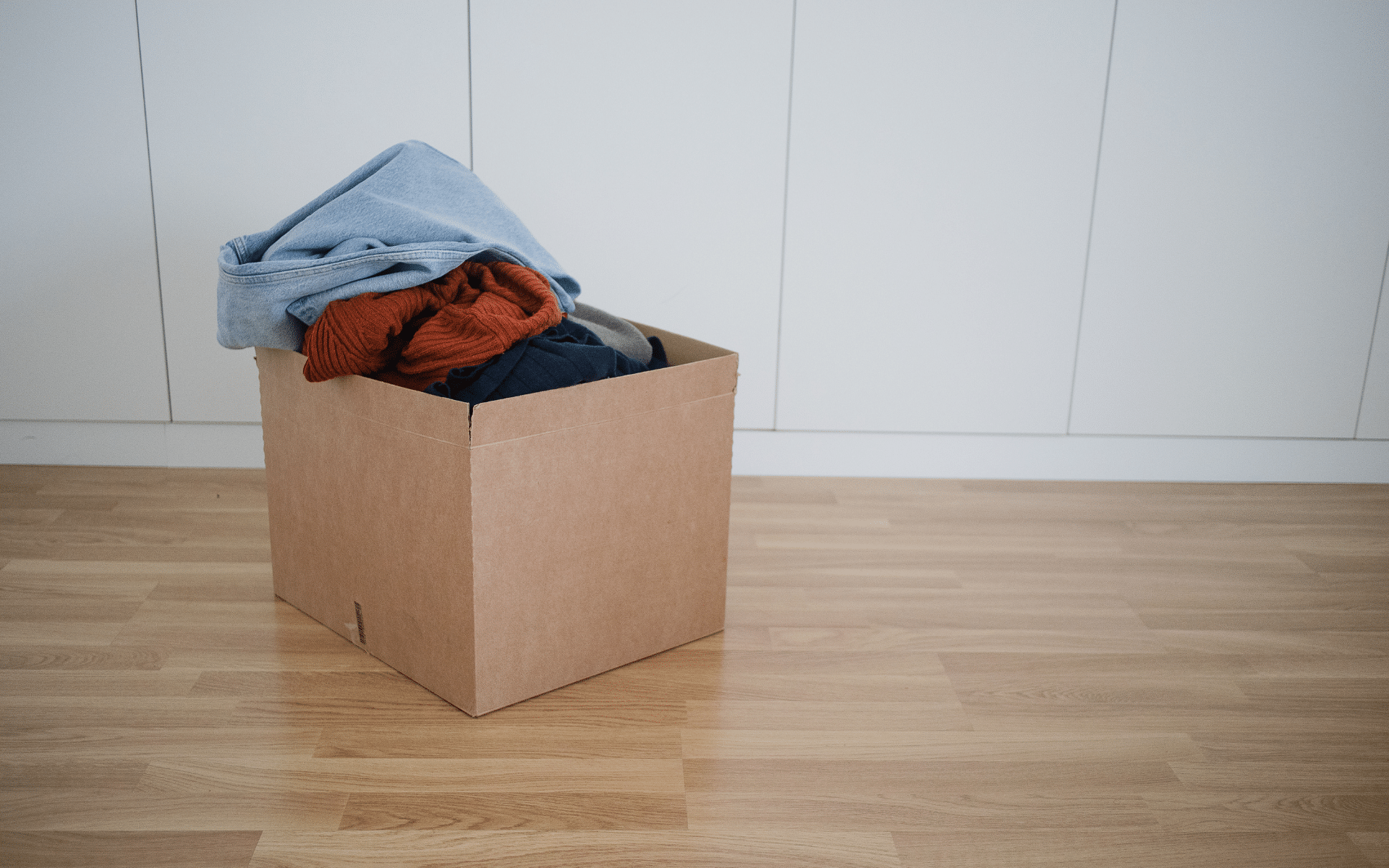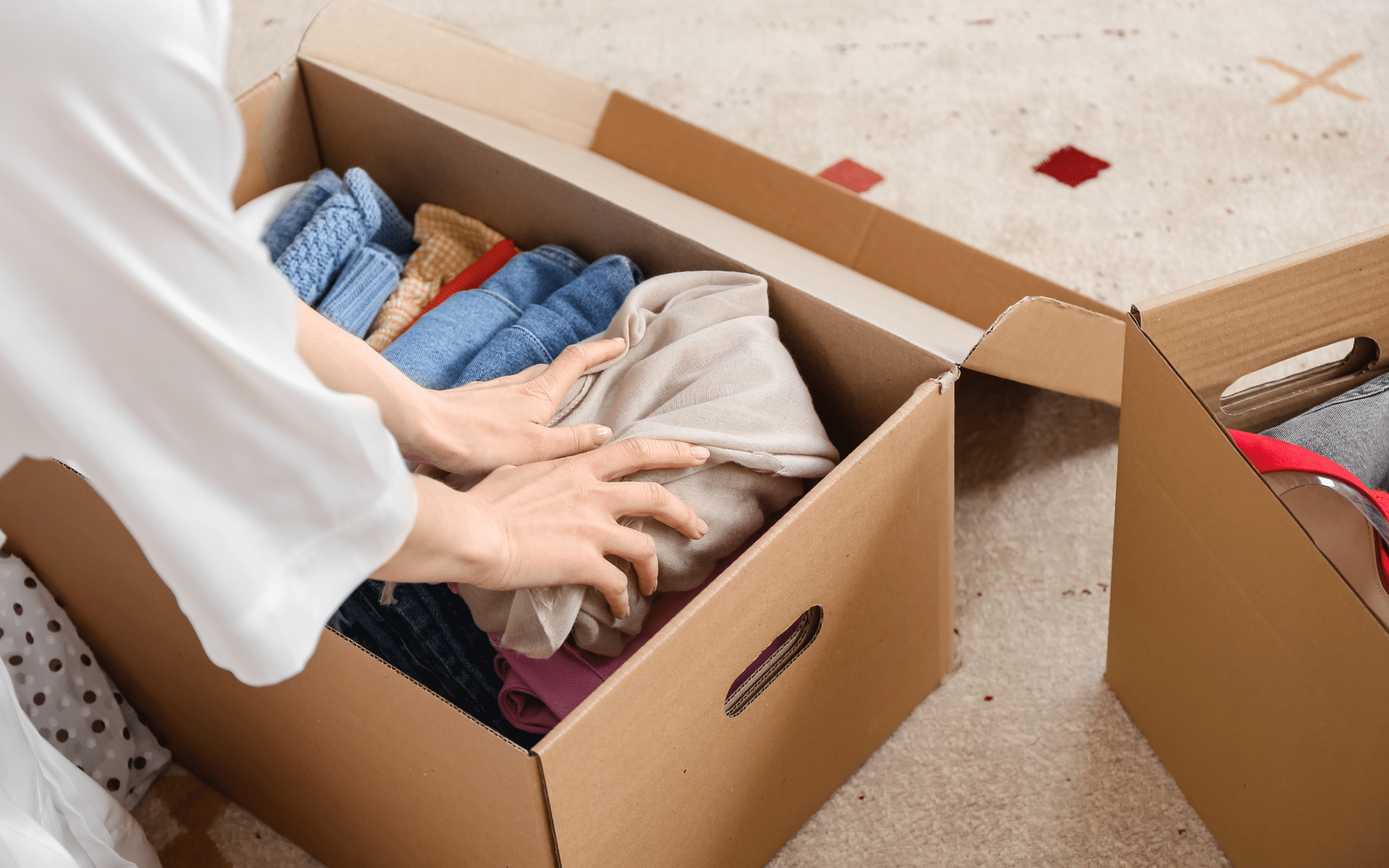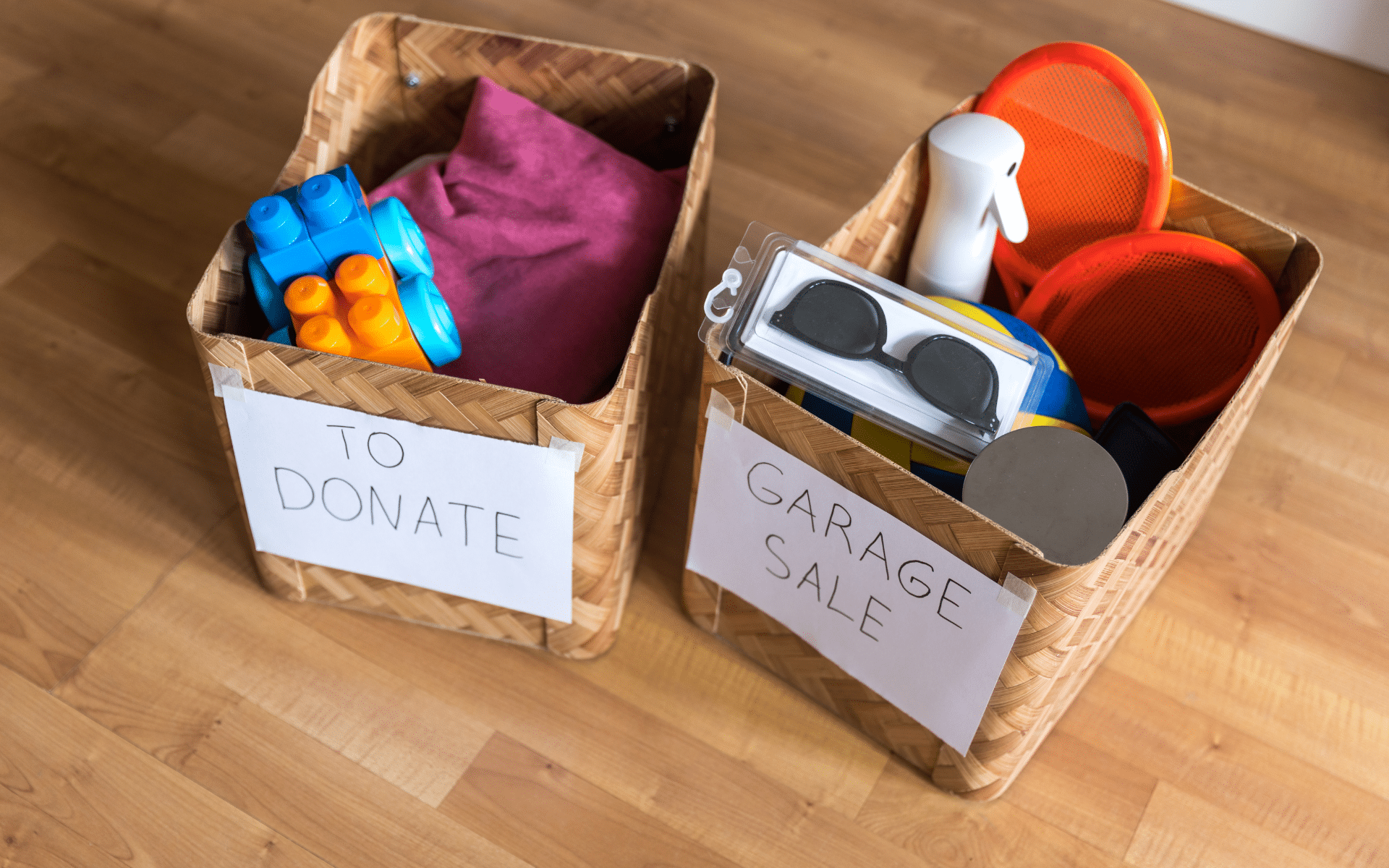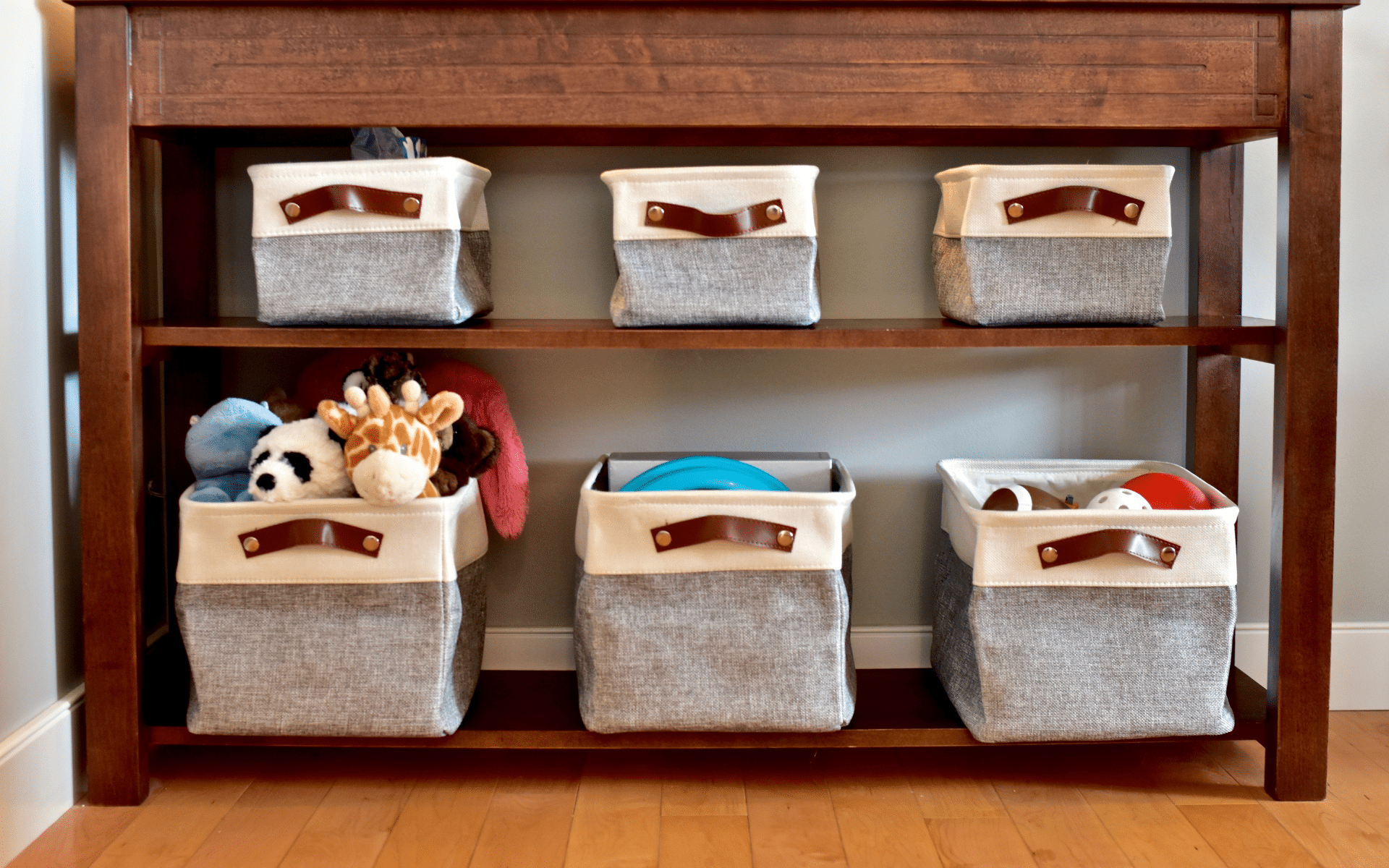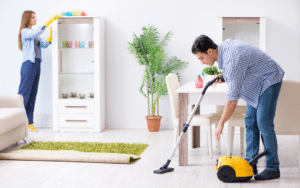Do you ever feel overwhelmed by clutter? Does your home feel cramped even though you have ample square footage? Most of us have more stuff than we need or use—items that sit unused taking up valuable space. Getting organized can seem like an impossible task, but decluttering doesn’t have to be painful. With some smart practices and decluttering tips, you can create space for what you truly value.
Well, you can look for a cleaning company to help you with decluttering and cleaning, but in this post, I’ll share my top 10 decluttering tips for freeing yourself from excess stuff. I’ve helped hundreds of clients declutter after years of accumulating possessions. I’m also a bit of a minimalist, so I understand the appeal of cleared-out space. Whether you want to downsize or just get better organized, these strategies will help you tame the clutter.
Why Declutter in the First Place?
Before we dive in, let’s review why decluttering is worthwhile. Here are some key benefits:
- Saves money. Storage units are often a waste of money. All that space for things you don’t need or use! Decluttering reduces your need for extra storage.
- Creates peace of mind. Excess stuff can weigh you down mentally and physically. Getting organized relieves stress.
- Makes cleaning easier. With less stuff, cleaning becomes quicker and simpler.
- Opens up space. Free up room for activities you enjoy or new belongings.
- Prevents future clutter. Establishing new habits keeps the clutter from coming back.
- Encourages healthy habits. Disorder breeds dysfunction in the form of unhealthy choices like junk food or lack of sleep. An organized environment leads to routines like home-cooked meals, earlier bedtimes, or scheduled exercise.
- Sparks joy. This Marie Kondo-approved benefit bears repeating! Thoughtfully curating your belongings to only items you truly cherish, need, and use gives us joy. Owning less allows us to appreciate what remains even more.
Convinced? Read on for this battle-tested decluttering advice.
1. Be Ruthless About Gifts
I love giving and receiving gifts as much as anyone. But some gifts just don’t suit our lifestyle or taste, even when gifted with love. Don’t feel guilty about parting with gifts that you don’t need or enjoy. Your home should reflect your choices.
Check gifts off your decluttering list first. Will you use that fondue set or pineapple core? I have a large collection of well-intended gifts that simply take up precious storage space. Gift items are easy targets for removal. If an item no longer brings you joy or serves a purpose, feel free to let it go guilt-free.
2. Set Up Donations and Recycling Stations
Getting rid of stuff is step one. But you also need to develop easy habits for moving items out quickly. A donation box makes it simpler to let go of quality used goods. Items like books, clothes, craft supplies, or small electronics may find new life with someone else.
I also recommend setting up a recycling station if you don’t already recycle. Paper piles seem to multiply when we fail to promptly process them. Recycling paperwork, magazines or cardboard eliminates future clutter. Some towns even provide recycling bins free of charge!
3. Category-Based Decluttering
Tackling clutter category-by-category works better than trying to declutter your whole home at once. Pick a manageable category like books, clothing, craft supplies, or paperwork. Set a timer for 15-30 minutes and quickly comb through that one category. Keep what you love or need, and discard what you don’t.
Trying to make decisions amidst surrounding clutter drains our mental resources. By isolating categories, you minimize tough choices. Once you finish a category, enjoy that quick win! Then neatly store or display what remains, appreciating all that open space.
4. Store Seasonal Items Together
Seasonal items like holiday décor or winter sports gear clutter our homes part of the year. These items feel useful yet sit unused for long stretches. Store seasonal categories together to free up main living areas in the off-season.
Labeling helps keep seasonal boxes organized if space allows separate storage. I house my Christmas décor in an unlabeled mess every January! Finally investing in proper holiday storage helped me quickly spot and neatly store each December. Labels prevent next year’s scramble trying to identify mystery boxes.
5. Keep Only Your Favorite Possession
Many of us collect similar items like books, mugs, t-shirts, or shoes. Pare down overgrown collections to curate your very favorite pieces. For example, pick your top 10 books per genre or 3-5 favorite mugs.
Photograph items you’re uncertain about letting go of for reference. You may find you never miss them or refer back to the photos. Holding onto 300 books, 200 t-shirts or 100 craft supplies overwhelms your space. Keep only beloved items you actually enjoy using regularly.
6. Create an Off-Limits Zone
Sometimes we struggle to let go of gifts, heirlooms, or other sentimental pieces. I don’t advocate throwing away important memorabilia. However, our homes still require editing.
Rather than making tough sentimental choices immediately, create an off-limits decluttering zone. Shelve treasured items apart from everyday living spaces for future reassessment. Revisit this emotional clutter later with a fresh perspective. With time, you may feel ready to pass certain special items on to others.
7. Establish a One In, One Out Rule
Prevent incoming clutter from accumulating again by establishing rules for new items entering your home. For example, commit to donating, selling, or discarding one item for each new item brought home. My one-in, one-out rule keeps clutter gaining ground!
Alternatively, impose a waiting period before purchasing big-ticket items or unnecessary wants. Often we realize over time we can live without new purchases. Practice self-check habits before accumulating objects that require storage. Consistently ask, “Do I really need this or have room for it?”
8. Handle Paperwork ASAP
Don’t let paperwork pile up into overwhelming stacks! File or shred papers and bills quickly to avoid feeling buried. Handle mail as soon as you bring it inside. Opening and then immediately recycling junk mail prevents clutter from accumulating.
Sort remaining mail quickly into bills, to-file paperwork, and items needing response. Don’t just place it in a pile for later. File paperwork immediately or set bills in a designated spot for payment. Respond promptly to items needing replies like invitations or RSVPs. Developing everyday document-handling habits prevents future chaos!
9. Conduct Mini Declutters
Set aside 15 minutes for mini declutters whenever you have extra time. Sort through a junk drawer, a pile of old mail, or an overflowing handbag pocket. Mini declutters make big declutters less overwhelming.
You can also incorporate mini declutters into existing routines. For example, declutter bathroom drawers while brushing your teeth or sorting a pile of clean laundry. Little pockets of time add up to significant clutter removal over weeks and months. Decluttering feels ongoing rather than a giant annual chore.
10. Be Mindful When Acquiring
Ultimately avoiding unnecessary possessions in the first place stops clutter accumulating. Decluttering clears out excess while mindful acquisition prevents its return. Always pause before purchases to ensure new items align with your home, lifestyle, and aesthetic.
Gift-giving occasions present frequent clutter opportunities too. Share wish lists featuring experiences rather than material objects. Or request necessities like batteries, socks, or cleaning supplies! Mindfully acquiring useful, loved items creates lasting order and peace.
Little Tweaks, Big Impact!
Paper is one of the biggest culprits when it comes to household clutter. Set up a functional home office space with dedicated areas to handle different types of paper. Assign an inbox for papers that require future action, such as bills to pay or invitations that need RSVPs. Use binders or accordion files to stay organized with the paperwork you need to keep. Shred, recycle, or donate the paper you no longer need.
The Spruce offers a thoughtful and practical framework for tackling clutter in every room. Create streamlined systems to stop paper clutter in hotspots like the kitchen, hallway, and bedroom. Use trays, bins, or custom boxes with dividers in key spots to handle daily mail, notices from school, and other papers. Regularly clear out the trays by distributing the paper before they pile up. Having contained spaces prevents scattered drifts of paper from taking over horizontal surfaces.
Strategize Toy and Hobby Clutter
Kids’ rooms often turn into disastrous clutter zones overflowing with toys, craft supplies, books, and half-finished projects. Set limits on the number of toys allowed in key play areas like the living room or bedroom. Use shelves, bins, or cabinets to neatly store toy collections by type. Rotate toys from storage to keep play areas feeling fresh and limit what’s visible at once.
Craft areas, workshops, and home offices can also easily accumulate hobby clutter. Carefully curate craft supplies like sewing goods, art materials, or woodworking tools to only what you reasonably expect to use in the next 6 months. Store properly labeled clear totes containing project overstock nearby but not underfoot. Keep surfaces clear for active use and store supporting materials out of sight.
Make Meals Less Cluttered
Kitchen surfaces and drawers inevitably accumulate food storage containers, small appliances, and cooking tools that don’t get daily use. Declutter your kitchen by regularly sorting through gadgets and bakeware. If items are broken or you can’t remember the last time you used them, toss them.
Next, implement smart storage solutions to keep essentials accessible but hide rarely used items. Install sliding shelves or pull-out drawers to efficiently access items stored in the back. Use lid racks inside cabinets to neatly store bulky pots and pans. Add hooks on the back of cabinet doors to hang not-often-used tools to keep counters and drawers clear.
Wrapping Up
Decluttering requires effort but is incredibly worthwhile for space, financial, and mental clarity. Always begin with easy category wins like gifts or seasonal items. Allot short periods for focused tasks then build momentum tackling larger categories. Establish ongoing habits like one-in-one-out rules or mini declutters to effortlessly stay organized.
Most importantly, let go of guilt or worry about wasting unused possessions. Your home should help you joyfully pursue activities and passions that matter most. Everything else is just clutter distracting you from living your best life. Embrace the freedom of only surrounding yourself with your most loved and useful items. Enjoy that decluttered feeling!


